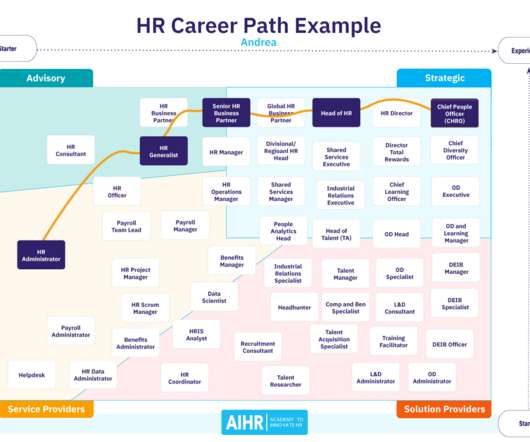Want a Career in Human Resources? Your In-Depth (2023) Guide
Analytics in HR
SEPTEMBER 7, 2023
HR is involved in designing and implementing these learning and development programs. Employee relations: HR provides accurate and timely information to employees to build good working relationships and boost employee engagement and retention.




























Let's personalize your content